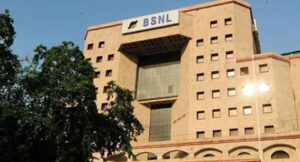A total of 29 companies had attended the pre-bid meeting on BSNL’s 5G tender for Delhi. Only three companies, Tejas Networks, Lekha Wireless, and Galore Network put in their bids to roll out indigenous 5G in standalone (SA) architecture across 1,876 sites in Delhi.
A weak response to BSNL’s 5G tender with a miss from larger companies has come because of the tender terms and conditions, which require selected bidders to incur capital expenditure (CapEx) and operating expenses (OpEx), according to industry executives. This is different from the 4G tender, where BSNL has paid the money to selected bidders for the services.
In the 5G tender, BSNL will have a revenue-sharing mechanism with the bidders selected and has asked for a minimum 70% share from the bidders after services are rolled out.
Notably, a total of 29 companies such as L&T Technology, TCS, Tejas, VVDN, Lekha, HFCL, among others, attended the pre-bid meeting on the 5G tender.
“We have the product and technology in place but we need backing from investors to incur the CapEx,” said Ramu T Srinivasiah, founder and director at Lekha Wireless. Lekha has applied to supply radios for the BSNL’s 5G services in Delhi.
For deploying 4G networks across the country, BSNL awarded a Rs 15,000 crore tender to TCS consortium. BSNL has so far launched over 65,000 4G sites on indigenous stack.
According to the tender document, BSNL will utilise the 900 MHz and 3300 MHz bands to provide 5G SA services across the designated sites. Estimates suggest that the selected bidders will have to incur a CapEx of over Rs 500 crore to deploy core network and radio solutions for BSNL’s 5G services.
The rollout is initially planned to serve 100,000 registered subscribers, with a simultaneous launch of fixed wireless access (FWA) broadband services.
“It will be the first time in the world that we are having a revenue share model and the bidders will not only have their roles in R&D design, equipment design but service provisioning,” said Rakesh Bhatnagar, director general of VoICE, which represents domestic telecom solution providers.
“Hopefully, this should lead us to have domestic export players in the developing world where presently we have only five suppliers of 5G,” Bhatnagar added.
Currently, the telecom equipment space is dominated by the likes of global players such as Ericsson, Nokia, Huawei, ZTE, and Samsung.
BSNL intends to partner with two service providers in Delhi: a primary 5G-as-a-service provider and a secondary provider. The primary 5G as a service provider will deploy one 5G SA core and a 5G-RAN using up to two original equipment manufacturers (OEMs), while the secondary provider will also deploy 5G-RAN equipment from up to two OEMs.
The duration of the contract between BSNL and service providers will be seven years from the date of commissioning of the 5G network and it being ready to use for offering services to end customers. After seven years, BSNL shall be at liberty to extend the contract for the next 3 years or more on mutually agreed terms and conditions, according to the tender document. Financial Express

Leave a Reply